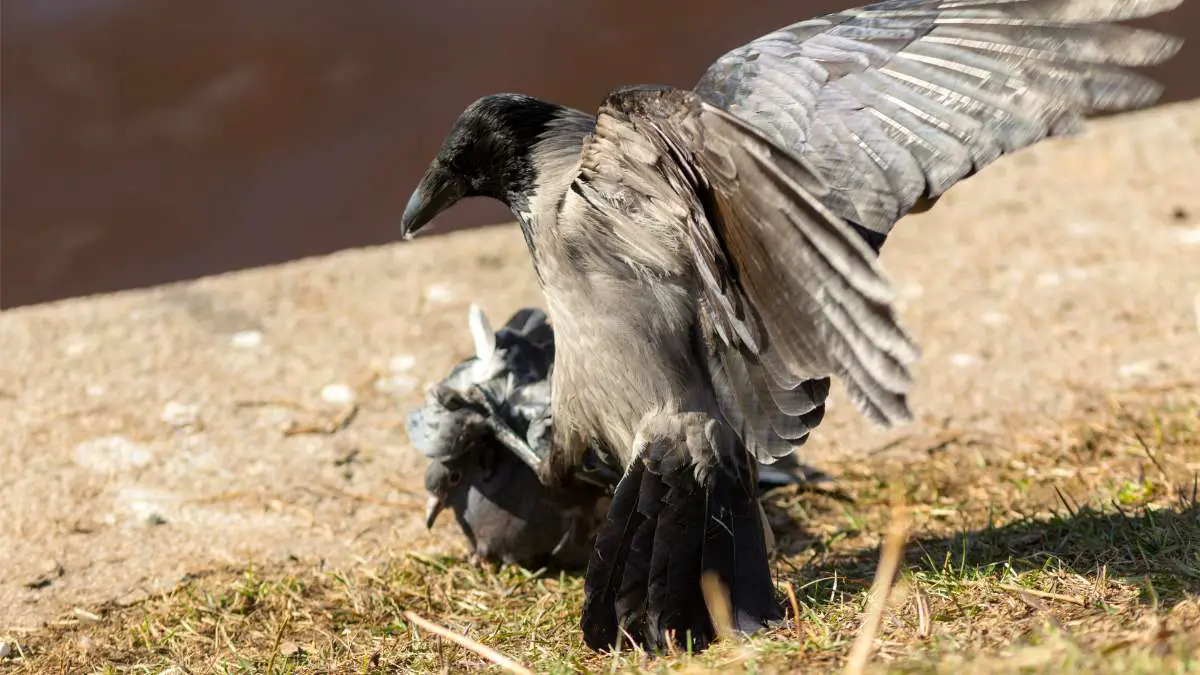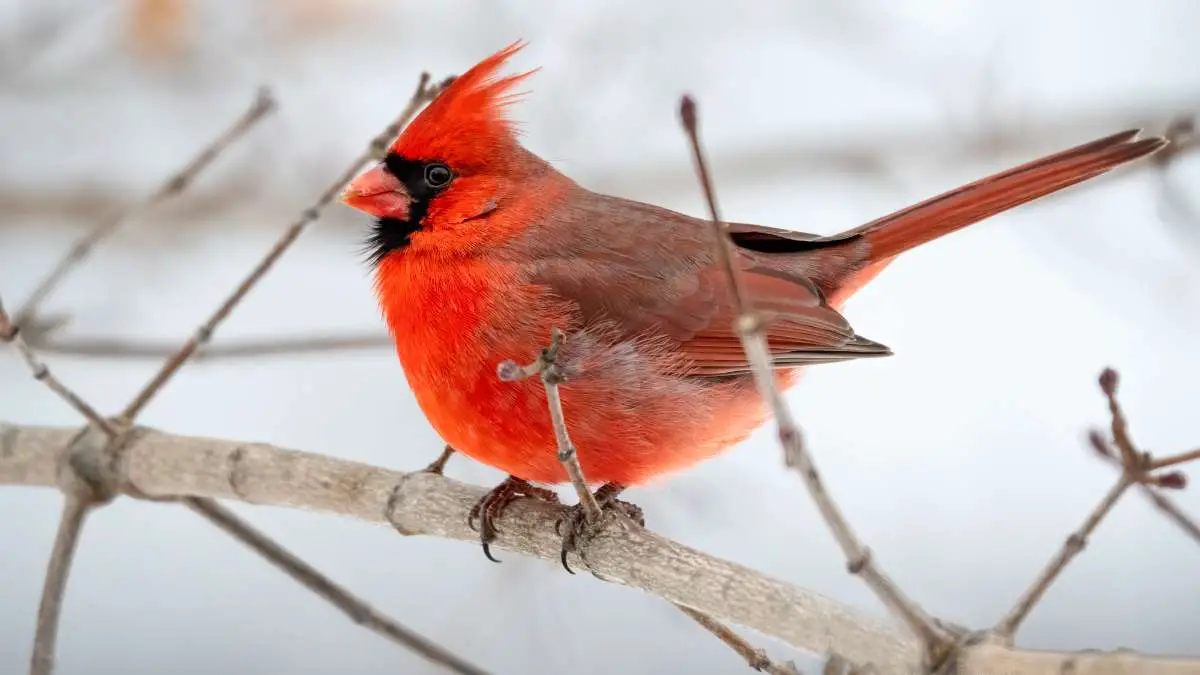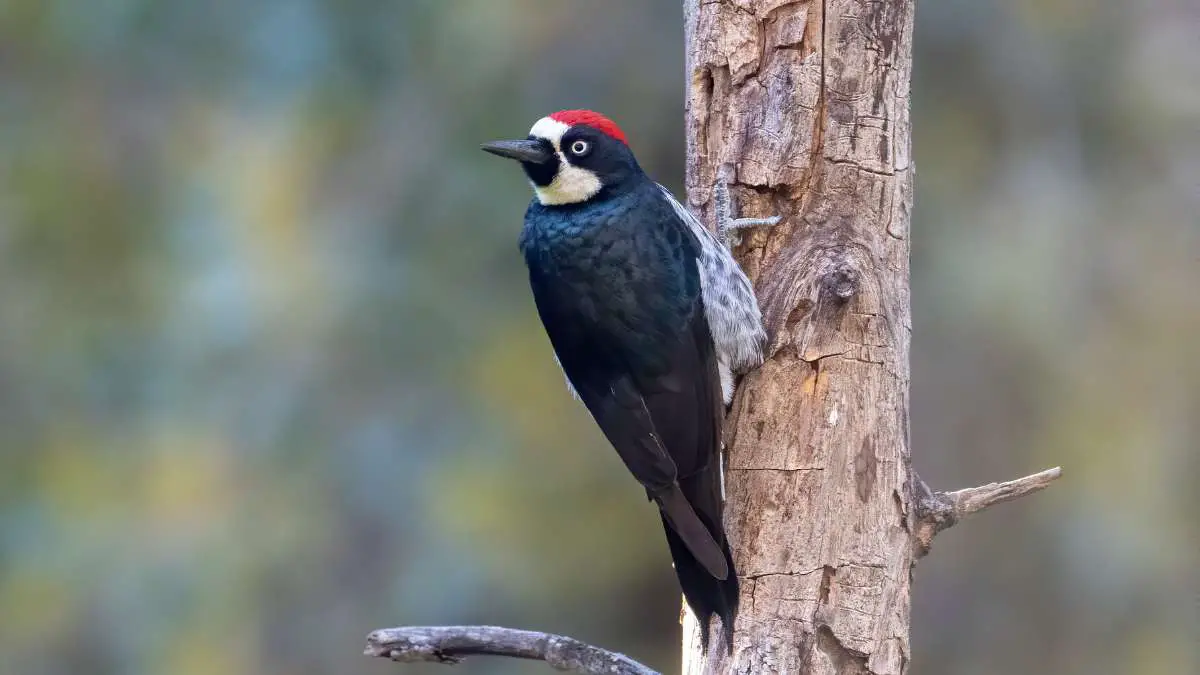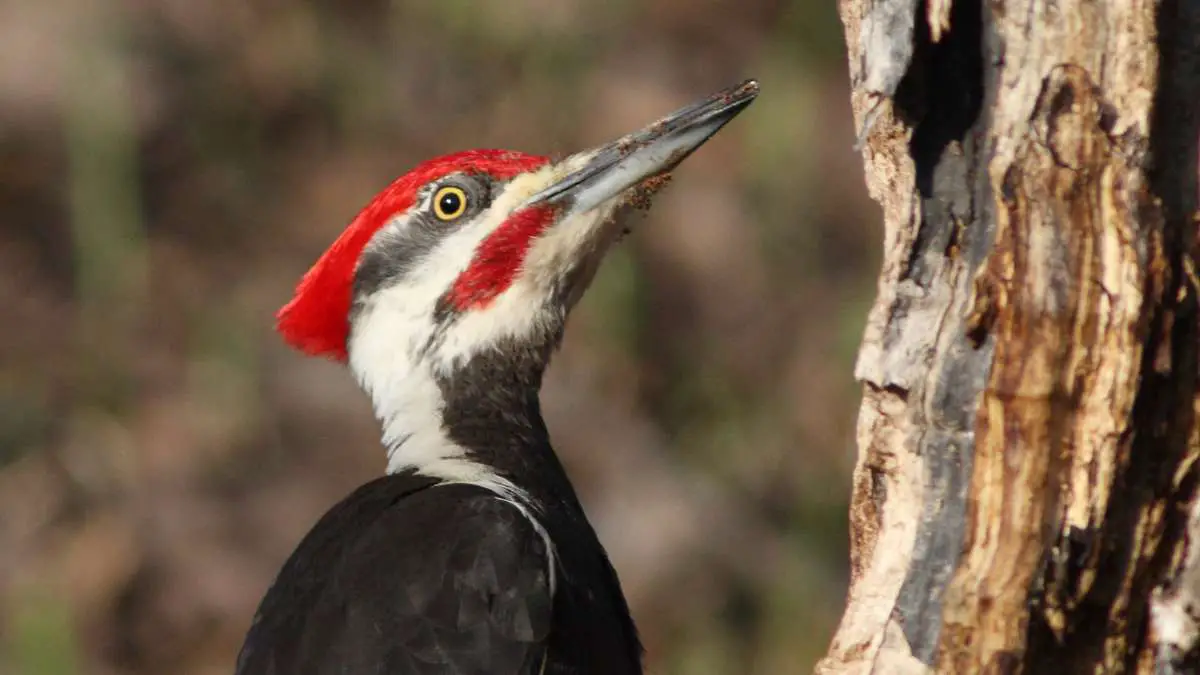Have you ever wondered if crows are more than just the clever birds you see perched on telephone wires or scavenging for food? Well, you’re not alone. Crows are curious creatures, known for their intelligence and resourcefulness.
In this article, we’ll explore a question that often piques curiosity: Do crows eat other birds? Here’s the short answer.
Yes, crows do eat other birds. While crows are omnivorous and have a varied diet that includes insects, fruits, and carrion, they are opportunistic feeders.
This means that if the chance arises, they won’t hesitate to prey on smaller birds, particularly when other food sources are scarce.
Crows are skilled hunters and are known to target nestlings and eggs of other bird species, especially during their breeding seasons. This behavior is a part of their survival strategy, ensuring they get the nutrition they need to thrive in a dynamic world.
Let’s dig deep to find out more about these enigmatic birds and discover their dietary habits.
Crow Diet – Omnivores of the Avian World
Crows are truly the omnivores of the bird kingdom. Their diet is a fascinating tapestry woven from a myriad of food sources that showcases their adaptability and opportunistic nature.
Crows are remarkable in their dietary versatility. Their omnivorous nature means they’ll eat just about anything edible they encounter.
This adaptability is a key to their success in a wide range of environments, from urban landscapes to rural farmlands.

Typical Crow Diet:
So, what’s on the daily menu for these resourceful birds? Crows have a taste for diversity, and it’s reflected in their meals.
They’re known to feast on an assortment of items. From the insect world, they savor beetles, grasshoppers, and caterpillars.
In the plant kingdom, fruits, grains, and seeds make their way into their diet.
But what sets crows apart is their fondness for carrion – the flesh of dead animals. This scavenging behavior not only helps them thrive but also plays a crucial ecological role.
Diving a bit deeper into their food choices, it becomes clear that crows are nature’s ultimate scavengers.
They find insects to be a delectable source of protein, while fruits and grains provide essential nutrients. Carrion, which might sound unappetizing to us, is a valuable part of their diet, allowing them to clean up nature’s remains and prevent the spread of disease.
Here is one scientific article about the food preferences of crows.
Crow Predatory Behavior
Crows, often known for their intelligence, also harbor a more menacing side – their predatory instincts. Let’s uncover the reasons behind their bird-hunting tendencies and explore some real-life instances that might surprise you.
Introduction to Crow’s Predatory Instincts:
While crows are omnivores, their predatory behavior is a facet of their nature that might not be as well-known.
Why Do Crows Hunt Other Birds?
So, why do crows engage in bird-hunting?
Several factors come into play. One significant motivation is competition. In the avian world, competition for limited resources like food and nesting sites can be fierce.
Crows, being highly adaptable, sometimes resort to hunting smaller birds to reduce competition.
Survival is another driving force. When food sources are scarce, crows turn to other birds as a readily available food supply. It’s a survival strategy deeply ingrained in their behavior.
Intriguingly, crow predatory behavior is more than just a survival tactic; it’s a testament to their adaptability and complex social dynamics.
It shows how these intelligent birds navigate the challenges of the avian world, where competition and opportunity go wing-in-wing.
Types of Birds Crows Prey On
When it comes to the world of bird predation, crows have their preferences.
Crows, as opportunistic hunters, often target smaller and, in some cases, weaker bird species. They take advantage of factors such as size, nesting habits, and vulnerability to decide their prey.
Vulnerable Bird Species:
Certain bird species are more susceptible to crow predation. These tend to be smaller birds, often with ground or low-lying nests.
Nestlings and eggs are particularly vulnerable, making breeding seasons a challenging time for some bird species.
Factors like nest location, lack of parental protection, and easier accessibility can all contribute to making some birds easier targets for crows.
Crow vs. Crow – Intraspecific Predation:
Crows, like many other intelligent and social animals, have their share of internal conflicts. Intraspecific predation, where crows prey on their fellow crows, can occur.
These cases often revolve around territorial disputes and competition for resources. In a world where survival is paramount, even members of the same species may find themselves in conflict over food, territory, and dominance.
Understanding the types of birds crows prey on sheds light on the dynamics of the interactions of the avian world.
It highlights the delicate balance between predator and prey, as well as the complex social interactions among crows themselves.
Crows’ adaptability and opportunistic nature ensure that they remain an intriguing species to observe in the natural world.
Crow Predation Impact on Bird Populations
The impact of crow predation on bird populations is a subject that merits a closer look.
As crows display their predatory talents, it’s worth understanding how their actions can influence the delicate balance of local bird populations and the broader ecosystems.
Ecological Consequences of Crow Predation:
Crows, as opportunistic predators, play a significant role in the local ecological theater.
Their prey isn’t limited to other birds; it encompasses various species, including insects, small mammals, and carrion. This diversity in their diet has ripple effects on local ecosystems.
How Crow Predation May Influence Local Bird Populations:
For local bird populations, crows can be both a boon and a bane. While they may reduce certain species due to predation, their scavenging habits also help in controlling populations of pests and scavengers.
This dual role crows play highlights the complexity of their impact on local bird populations.
Balancing Act in Ecosystems:
Understanding the role of crows in ecosystems is like navigating a multi-act play. They are both actors and directors, shaping the fate of other species.
Crows’ predation impacts not only the numbers but also the behavior of their prey. By preying on certain species, they may indirectly benefit others by limiting competition for resources.
Complex Role Crows Play in Ecosystems:
The complexity of the ecological stage becomes apparent as we explore crows’ influence on various trophic levels.
Their role as scavengers, predators, and even seed dispersers makes them a unique and intriguing component of ecosystems. Understanding this complexity helps us appreciate the web of life and death in the natural world.
Mitigating Crow Predation
As we explore the world of crows and their predation habits, it’s important to consider how we can strike a balance between the needs of these clever birds and the well-being of other bird species.
Here, we discuss measures for reducing crow predation and responsible practices that protect vulnerable bird populations.
Measures to Reduce Crow Predation:
For those seeking to manage crow predation in specific areas, there are strategies to consider.
These may include measures to deter crows from nesting or foraging in sensitive locations. However, it’s essential to approach these interventions thoughtfully and in accordance with local regulations.
Responsible Practices for Protecting Vulnerable Bird Populations:
Protecting vulnerable bird populations from crow predation involves a careful, ethical approach. It’s important to focus on the conservation of threatened bird species while recognizing that crows, too, play a valuable role in ecosystems.
Responsible practices include targeted efforts to safeguard nesting areas, especially for birds at risk, as well as supporting wildlife habitat conservation.
Ethical Considerations:
Ethics are central when managing crow predation. It’s crucial to strike a balance that respects the life cycles of both crows and other birds.
Crow control methods should prioritize non-lethal, humane approaches that consider the welfare of these intelligent creatures.
Discuss the Ethical Aspects of Managing Crow Predation:
Ethical considerations revolve around the consequences of managing crow predation.
While it’s necessary to protect vulnerable bird populations, it’s equally important to do so without causing unnecessary harm to crows.
Responsible wildlife management aims to minimize the negative impact on all species involved.
Highlight the Importance of Conservation and Non-Lethal Methods:
Conservation remains a focal point. By opting for non-lethal methods and emphasizing habitat preservation, we can respect the diversity of life in our ecosystems.
The challenge lies in managing coexistence, recognizing the value of every species, and promoting harmony in the complex world of avian relationships.
Conclusion
In the world of avian behavior, the question “Do Crows Eat Other Birds?” leads us to a profound understanding of these intelligent creatures.
Crows, with their omnivorous nature, reveal a complex tapestry of survival strategies and ecological significance.
They are more than just scavengers; they are key players in maintaining the balance of our ecosystems. Their predation on other birds, though sometimes challenging, underscores the intricate web of life and death that defines the natural world.
These dark, enigmatic birds teach us that nature’s harmony often emerges from the interplay of predator and prey, showcasing the remarkable diversity of life on our planet.





